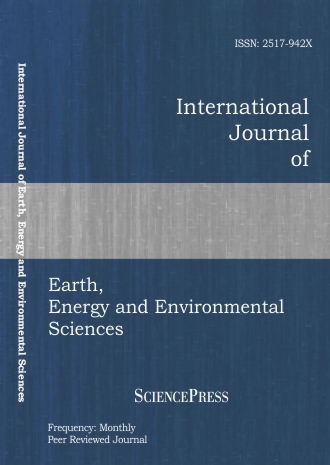
Scholarly
Volume:9, Issue: 6, 2015 Page No: 611 - 616
International Journal of Earth, Energy and Environmental Sciences
ISSN: 2517-942X
Production of Composite Materials by Mixing Chromium-Rich Ash and Soda-Lime Glass Powder: Mechanical Properties and Microstructure
A chromium-loaded ash originating from incineration of tannery sludge under anoxic conditions was mixed with low grade soda-lime glass powder coming from commercial glass bottles. The relative weight proportions of ash over glass powder tested were 30/70, 40/60 and 50/50. The solid mixtures, formed in green state compacts, were sintered at the temperature range of 800o C up to 1200o C. The resulting products were characterized by X-ray diffraction (XRD), scanning electron microscopy (SEM), energy dispersive X-ray spectrometry (EDXS) and micro-indentation. The above methods were employed to characterize the various phases, microstructure and hardness of the produced materials. Thermal treatment at 800o C and 1000o C produced opaque ceramic products composed of a variety of chromium-containing and chromium-free crystalline phases. Thermal treatment at 1200o C gave rise to composite products, where only chromium-containing crystalline phases were detected. Hardness results suggest that specific products are serious candidates for structural applications.